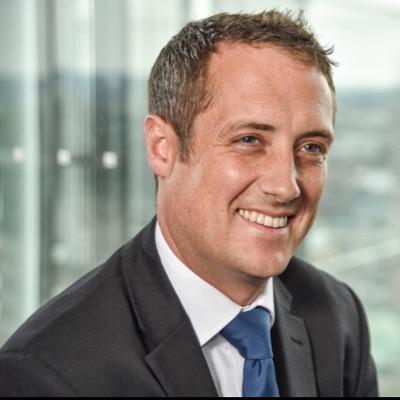Meet the KPMG dealmaker putting the Big 4 firm in the green energy mix

Hardly a week goes by without a new survey showing the slump in M&A activity in 2022. By some estimates M&A dropped 18 per cent after the flurry in 2021.
However, looking a little closer reveals a more nuanced picture. Mid-level M&A remained fairly consistent while certain sectors saw continued growth. One of the most prominent of the growth sectors was clean energy, where there were actually more deals in 2022 than the year before.
There were 2,047 deals for clean energy companies in 2022, up from 1,362 in 2020. Industry figures only expect that number to rise in the coming years as decarbonisation picks up pace.
Lead of KPMG’s clean energy M&A team Gavin Quantock reckons his team are well placed to capitalise on the “flurry of activity” in the sector.

“We are going from strength to strength and there has never been a more exciting time to be working in Energy. There is so much M&A activity in the sector and it is only going to continue and I want to ensure that we remain at the heart of it”
Quantock said his team is the largest clean energy team in the city, having grown from eight in 2019 to 35 at the moment. The team work on mobilising “the wall of capital focused on decarbonising the planet”.
Quantock describes decarbonisation like a rocket. “There’s an initial lift-off phase to take the rocket into orbit before a second phase in orbit when it really takes off.” Clean energy investment is about to hit the second phase, Quantock argues, and its not difficult to see why.
Last year, the US government unveiled the $369bn Inflation Reduction Act, the largest climate-related investment in history. Industry estimates suggest the package will more than triple US clean energy production by 2030.
The EU is already organising its own response, the ‘Green Industrial Plan’ which will include loosening state subsidies for member states. In the UK meanwhile, the government is expected to launch a range of incentives and subsidies for clean energy producers later this year.
The scale of government intervention is a reflection of the challenge.
According to a recent report from international think tank The Energy Transition Commission, capital investment will need to average $3.5tn a year between now and 2050 to reach net zero. At the moment, around $1tn is invested in clean energy globally.
Clean energy is a broad label. It covers everything from solar and wind, to hydrogen and biomass.
While there have been questions about whether it is wise to pursue growth across the sweep of clean energy industries, Quantock suggests its best to pursue a range of different options to suit the different needs around the world.
“There needs to be a mixed energy economy” Quantock said, saying “there’s a clean energy source for everyone.”
Across all sectors clean energy is expected to increase to 5,600 gigawatts over the next five years, up from 2,400 gigawatts at the moment. It can only increase at that speed with a substantial influx of capital – “there is a lot of dry powder out there ready and willing to enact the energy transition” Quantock says.
Quantock’s team closed the UK’s most recent green hydrogen deal with GeoPura, whose customers include the BBC and HS2. GeoPura received £36m in investment from a consortium including General Motors’ investment arm and Barclays Sustainable Impact Capital.
Perhaps most prominently, Quantock worked with Octopus Energy for four years, helping to bring in a range of different investors – including Tokyo Gas and Al Gore’s investment fund. With Quantock, Octopus raised over £1bn.
Octopus now provides energy to around five million households. Last November, Cornwall Insight said Octopus is now the third-biggest supplier in the country with a 16 per cent share of the market, firmly disrupting the traditional big six.
Quantock said Octopus is a “truly talented business”.
And “energy is more global than ever”, Quantock says. He has concluded transactions in Finland, Sweden and Korea as well as domestic mergers.
With so much more to be done around the world to finance the transition, Quantock and his team are likely to be in high demand for years to come.